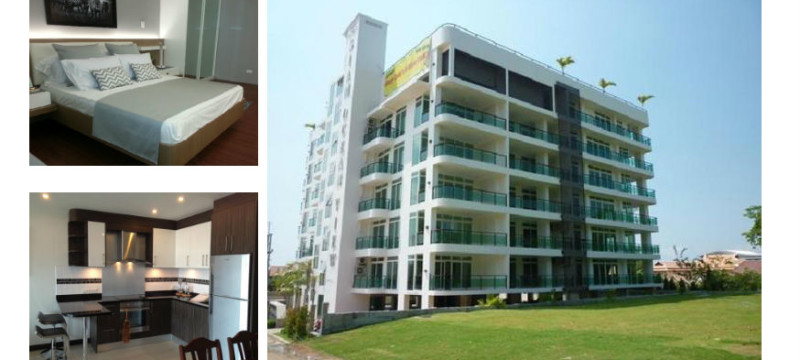
The Thai Condominium Law, Who Can And Can’t Buy A Unit
- July 8, 2014
- Haris & Associates
- 1 Comment
The easiest way for foreign nationals to acquire an ownership interest in Thai real estate is to buy a condominium unit.
The provisions of the Condominium Act of 1979 stipulate the ownership conditions for foreign persons or entities.
According to Section 19 bis of the Condominium Act, foreign nationals who are legally permitted to enter Thailand may be 100% owner or freehold owners of condo units in buildings that are registered and licensed as condominium. The same provision stipulates that not more than 49% of the unit floor space may be owned by foreign nationals with some exceptions in Bangkok and Pattaya. Both Phuket and Pattaya have higher foreign ownership.
The Condominium Act allows five classes of aliens (foreigners) who can own condominium units. They are:
● Aliens with a Residence Permit under the Immigration Laws.
● Aliens granted entry to Thailand by virtue of the Investment Promotion Law.
● Juristic persons as defined in Sections 97 and 98 of the Land Code and registered as juristic persons under the laws of Thailand.
● Juristic persons who have certificate of promotion of investment under the Investment Promotion Laws.
● Juristic persons or aliens determined by Thai Laws as aliens, who have remitted foreign currency into Thailand, or withdrawn the money from the Baht account of the non-resident person, or withdrawn the money from the foreign currency deposit account
Other Condo Ownership Alternatives
The foreigner buying a condo unit must bring into Thailand the total amount equivalent to the condo unit’s total purchase price in foreign currency and having converted this purchase amount into local Thai currency (Baht) through a receiving bank in Thailand.
If the condominium building has sold out the foreign ownership quota, possession of the remaining apartment units at the Thai side of the condominium may be transferred to foreigners under a lease agreement. This is not the same as a condo freehold purchase. Leasehold gives the right of use and possession of the unit for a set period of time, in many cases for 30 years with option to renew.
Another alternative in case the foreign ownership quota of the condominium building has already been sold out, foreigners may set up a Thai limited company and buy a unit under the company’s name.
Who Cannot Buy Condo Unit In Thailand
● Aliens who cannot present evidence of being permitted to have residence in Thailand under Immigration Law
● Aliens who cannot present evidence of being granted permission to enter Thailand under the Investment Promotion Law of the Board of Investment
● Juristic person who cannot present evidence of registration as juristic person under Thai Laws
● Juristic person who cannot submit Promotion Certificate under the Investment Promotion Law
● Juristic person who cannot submit Foreign Exchange Transaction (FET) form as proof of capacity to pay for the condominium unit
There are no restrictions provided for Thai nationals on ownership of condominium units in Thailand. This means, as long as the Thai national is financially capable to purchase a condo unit, he or she can own one.
As a foreigner, before you consider buying a condominium unit in Thailand, make sure that you do some research. Thailand’s real estate market is continuously growing and investing is really enticing especially if you want to have good return on your investments. Here are some of the most important factors that foreigners consider when buying a property in Thailand.

[…] Thailand, the law states that a foreigner may not be able to buy house and land, but may own a condominium unit. This is the Thai government’s way of giving a leeway for […]